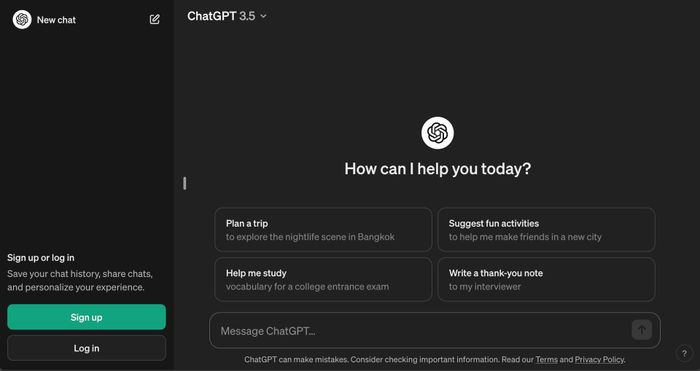ChatGPT is no longer the smartest, allowing use even without an account

Now, simply opening ChatGPT's app or website will immediately bring users to the "How can I help you today?" loading screen, with optional buttons to register or log in.
OpenAI also said it has added increased protections for users without accounts, compared to logged in users. One of them is limiting image creation to certain content categories.
An OpenAI spokesperson also said that teams developing accountless usage mechanisms will be constantly on duty to prevent threats from the new model.
According to statistics, more than 100 million people in 185 countries use ChatGPT every week. These are incredible numbers for a service that has been in operation for less than 2 years, and comes from a young company that few people knew about before.
However, ChatGPT is also facing many competitive efforts. Recently, the newly published ranking of LMSYS, an organization specializing in evaluating and ranking the capabilities of large language models, shows that the large language model Claude 3 Opus, developed by Anthropic, the startup based in San Francisco (USA), has surpassed OpenAI's GPT-4-1106-preview to become the world's smartest language model.
 New invention: China launches outstanding energy-saving chip
New invention: China launches outstanding energy-saving chip Big Tech corporations prioritize investing in AI startups
Big Tech corporations prioritize investing in AI startups 100 billion USD to build the most expensive supercomputer facility in the world
100 billion USD to build the most expensive supercomputer facility in the world Rushing to invest in generative AI because of FOMO?
Rushing to invest in generative AI because of FOMO? The generative AI craze is driving Big Tech to invest billions of dollars in startups
The generative AI craze is driving Big Tech to invest billions of dollars in startups Production - business changes due to robots and virtual people
Production - business changes due to robots and virtual people